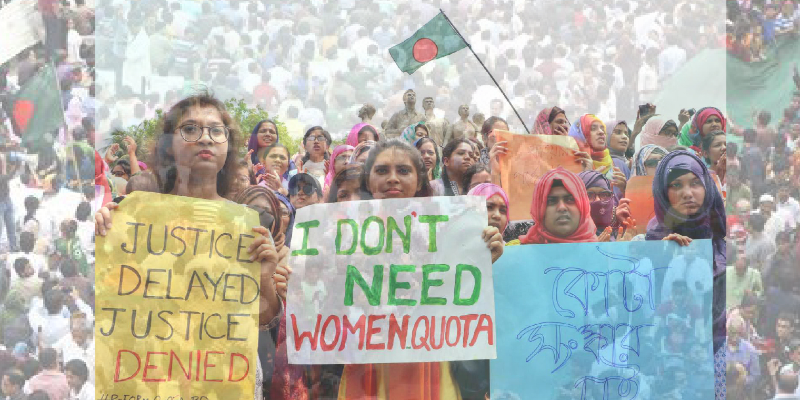
It is for the sake of academic studies the world should analyse the principal reasons for the utter fall of Sheikh Hasina's regime in Bangladesh in 2024. Apparently, all were legally correct for her to rule. But it came to a sheer full stop by the public-student movement only when her party set sail for a fresh journey of 5 years though having robust internal structure to sustain. Was the fall of Sheikh Hasina's government in Bangladesh in 2024 merely the result of a combination of widespread public discontent, sparked by student protests, and exacerbated by her government's increasingly authoritarian response? The tipping point, no doubt, came after violent government crackdowns on protests that began in June 2024, initially over apparently the benign reforms to the job quota system. What began as a student-led movement quickly escalated into a national uprising against Hasina’s leadership and we have seen how quickly it melted to the ground with her fleeing from the country. A plain list of the key factors resulted in Hasina's inability to quell the protests peacefully, led to her ouster would look like the following:
- Student Protests
- Escalating Violence
- Unpopular Elections and Corruption
- Military’s Role
True that these key factors combined to result the ultimate fall. But these conform only the tip of the iceberg. The real reasons which caused these factors come to being and taking place all at once require detailed analysis. We endeavoured only ten of them in order to provoke your thoughts
[1]
View Comments
#10 Infidelity in the Army
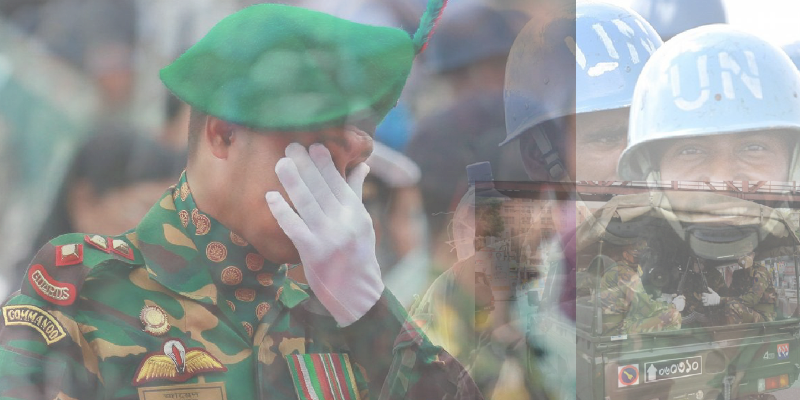
This may be considered the ultimate reason for the Collapse of Sheikh Hasina's regime. Sheikh Hasina rarely met the army face to face in any large gathering during her tenure as the PM though she was the defense minister. She saw defense forces through the eyes of a few people and vice versa. She kept distance from defense forces but was always a service taker of them. Therefore, there a disconnect was seen during the whole period of 15 years of her reign in the country. One of the first significant blows to Hasina’s relationship with the military came just months after she assumed office in 2009. The Bangladesh Rifles (BDR) mutiny was a brutal uprising that resulted in the massacre of 74 people, including 57 of military officers. Sheikh Hasina's response to the mutiny, which was seen by some as too lenient and politically driven, angered many within the army. The perception that the government willfully failed to protect army officers during the mutiny caused a deep-seated mistrust among many within the military ranks. However, the following are the underlying reasons for resentments among the defense officials, specially Bangladesh Army
Taboo became Practice in the Military: Sheikh Hasina has been accused of politicizing the Bangladesh military by promoting officers loyal to her ruling Awami League government, while sidelining those who were not. This was unprecedented in Bangladesh as defense was completely apolitical and rather politics was a taboo in all the defense forces. Hence, the practice of selectively appointing senior military officials created an internal divide within the army, eroding its unity and professionalism. Many good officers found that the reward of being substandard and submissive to petty political agenda is higher than being professional and proper. This, in turn, fueled resentment among certain factions of the military, who felt that the institution was being manipulated for political gain rather than being allowed to operate independently as before belying its age long design
Foreign Policy and Indian Influence: Hasina’s perceived alignment with India—especially in terms of defense cooperation, transit agreements, and regional security policies—fueled suspicions within the military that Bangladesh’s sovereignty was being compromised. The Bangladesh Army, which takes pride in safeguarding national sovereignty, increasingly viewed Hasina’s government as too accommodating of India’s interests. Ironically, the military forces of Bangladesh were trained to perceive India as a potential threat to Bangladesh’s sovereignty. Therefore, when they saw that the narratives and classroom lectures were being changed to rather treat India as a "Greenland" made them feel insecure. It became an open secret that the selection of the top positions in the military forces was to be ratified by the Indian agents, whereas none other than Sheikh Hasina was the defense minister seemed to be a dummy to the military. The Defense Advisor of Sheikh Hasina was getting more and more unpopular among the officers of the armed forces in Bangladesh stood as tall wall between Sheikh Hasina and the military officers. An Army Chief, General Aziz was documented by Al Jazeera's investigative report was a great shame for Bangladesh Army who was alleged to be a selection by the Indian agency. Such speculations could not be suppressed by the regime despite all out efforts by the regime.
3 last Elections and Military Role: Prior to the 2018 elections, the intelligence wings of all the defense forces submitted confidential reports to the then Prime Minister that the ruling Awami League would not earn any more than 20% seats in the election if the election was somewhat fair. It is a tradition in Bangladesh that in elections, the military plays the role of a neutral observer by ensuring election security and maintaining stability. However, Hasina’s apparent sidelining of the army in favor of the police and paramilitary forces to control the 2018 elections, combined with widespread reports of electoral fraud, created an atmosphere of distrust between the government and the army leadership. This perceived erosion of democratic principles and lack of transparency was a significant departure from previous norms, and the military’s historical role as an impartial enforcer of electoral security was undermined. The non-aligned part of the defense forces concluded that their neutral role had to be soon forsaken in the upcoming days, rather their role would be to protect the wrongdoers was being more and more palpable. This apprehension in 2018 was proved correct when during the 2024 election was rejected by Army was severely dealt with by Sheikh Hasina’s regime.
Toothless Tiger Perception: The helplessness of Bangladesh defense forces in response to Myanmar insurgence, influx of Rohingya refugees, India and China’s supremacy over major military decisions and Hasina’s apparent lack of confidence in Bangladesh defense forces, etc. led to a point of contention between Hasina’s government and the military, especially as international criticism mounted over the handling of the sovereignty crisis. Some in the army believed that Hasina’s government failed to adequately push for stronger international intervention, leaving Bangladesh vulnerable to the fallout of the humanitarian crisis and the crises so forth.
Complete Erosion of Military Support in 2020
By the early 2020s, the relationship between Sheikh Hasina and the military had reached a breaking point as army officers found themselves in competition with police force. The Murder of Major Sinha Mohammed Rashed Khan on 31 July 2020 triggered an alarm among all army officers against the use of guns against retired army officers which created a rift that was almost impossible to bridge between the Awami League government and the Bangladesh Army.
The dissent within the military ranks, particularly among mid-level officers who felt that the institution was being undermined by political interference resulted oppression and exodus among the officers. These officers opened social media accounts and started badmouthing the regime openly. It is at this time the dissent became public and remained no more classified.
The conspiracy theory that foreign agencies, particularly the Indian ones, were behind all the mischief against Bangladesh Army in order to give the Army a bad name was getting stronger and stronger among the serving army officers and the exodus and the retired army officers. This growing dissatisfaction began to erode the military's traditional support for the government.
Foreign Relations and External Pressures: While Hasina's civil government faced increasing pressure from Western nations over issues of human rights, democracy, and authoritarianism, the military was partially being blamed as well for its implicit support. The role of Bangladeshi forces in UN peacekeeping missions came under threat. This further widened the gap between the army's priorities and Hasina's increasingly insular governance as the blame was everywhere.
Military vs Civil War and Sheikh Hasina: By losing the support of the Bangladesh Army, Sheikh Hasina's political foundation weakened significantly. All the immune system of Sheikh Hasina's regime flopped, she tried to push the nation to a pre-civil war battlefield bringing military on the scene. But the military prudently opted for a civil situation averting an ocean of bloodshed.
View Comments
#9 Compromised Sovereignty
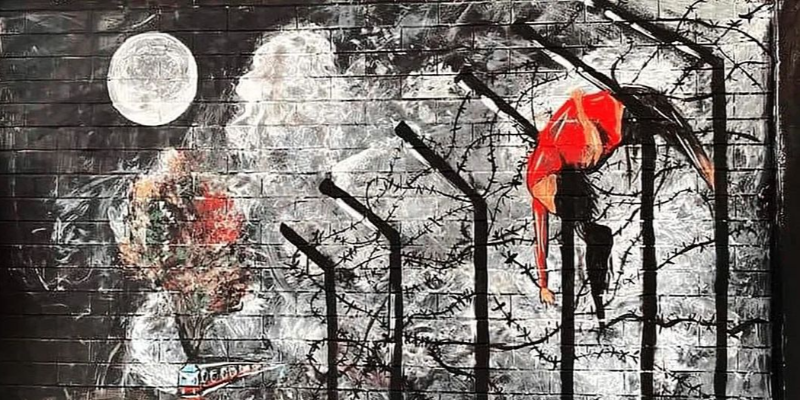
The sovereignty of Bangladesh under the regime of Sheikh Hasina, especially her later terms from 2009 onwards, has been a subject of criticism by her opponents and some analysts, both domestically and internationally. On Feb 25, 2009 an unthinkable incident shook the country. 57 Army officers deputed to BDR were killed in the so-called mutiny. It did not take long for the defense analysts, both military and non-military, to relate the mass killing with the ensuing process of silencing the entire military barrack and its purposes. The implicit links to Indian agents could not be kept under the carpet during Sheikh Hasina regime.
The blatant support of India for Sheikh Hasina’s rigging of 2014 and 2018 elections and regaining the throne was no secret to the nation that India was interfering into domestic matters of Bangladesh and to the top level. Likewise, all critics argue that certain political decisions and foreign policy strategies ensured all advantages to India whereas longstanding critical issues for Bangladesh, e.g. border killing by BSF, the Teesta River water-sharing dispute, imbalanced trade, etc. were being pathetically ignored.
The arguments went to the extent that the government offices started getting direct dictations from the Indian people from unknown sources and an invisible hand comes and stops them. These were reflected on various pseudo-articles which created a huge amount of psychological pressure on the Bangladeshis of all sects. All these arguments proved to be true when Sheikh Hasina fled the country and the invisible hand was no more in action.
Seeing the success of the Indians in denting the sovereignty, the Chinese came with their loan-snags. Bangladesh got entangled in China’s Belt and Road Initiative (BRI) in a way that risks compromising long-term sovereignty by increasing infamous indebtedness to China. China too were a big supporter Sheikh Hasina’s regime was a big surprise to the nation. The establishments of Sheikh Hasina could not provide any respite to the citizens who fell victims of the civil war in Myanmar and saw many secret killings inside the secured Rohingya Refugee camps.
The national defense and national intelligence appeared to be paralysed in front of the foreign influences of China and India. Finally, all these were apprehensions revealed to be true by the fact that Sheikh Hasina fled to none other country than India and by the subsequent reactions made by India, which were no surprise to the nation
View Comments
#8 Information Catastrophe

Ever since Sheikh Hasina ascended to the power in 2009, more precisely, from February 25, 2009 onward, the nation, for the first time, witnessed that the state machinery was controlling information, like an emerging authoritarian government. Since the nation bumped into one 20 years back, resurrection of it was not even in the nightmare. Yes, the worst of nightmare came true, fast and furious, with the reality that her regime would surpass all records set before by her father from 1972-75 and by Mr. H M Ershad from 1983-1990. An evil genius created an organized, orchestrated propaganda machine for her from the early stage of her take over. The nation quite helplessly noticed that by being an ordinary citizen one cannot have access to the true information from the state and hence throughout her regime an ontological question hovered around their heads, “What did they lack for being eligible to know what they are supposed to know?” One small example could be the demographic figure of the country which was kept obscure in order to falsify the economic data to the nation. Therefore, whatever the nation read on the newspaper or watched on the television news yielded an epistemic question in their mind, "do we know what do we know? And how do we know it that it is true from around?” The Tabula Rasa of the Gen-Z filled up with the information which are true lies which deductively created a conclusion that the Gen-Z were being brought up in a psychologically impaired state and in the hind side the state machinery was bringing up a cruel authoritarian monster in nature, side by side.
A framework of falsehood created a fume so strong that whatever element of fragrance of the truth remained that became contaminated and toxic which created dissolution among the common public which eroded trust in her very soon, before she could complete her tenure. Her initial 4 years of rule was full of spine-chilling stories of murder, abduction, torture, threat, spying, etc. all of which pertain to her efforts to control information or press. The way government briefed the nation on Heavy trucks encompassing the residence of Khaleda Zia, Hefazat-e-Islam incidence, enforced disappearances, judicial oppressions against the opposition and many more sounded even more preposterous than that of “21st August Grenade Attack” by many counts. By 2014 because of her information jugglery the world could deductively conclude that Sheikh Hasina would be one of the cruelest authoritarian leaders of the world having no exit plan. Now, waited for the reactions from the external world.
It seemed that she did not care at all about what the Bangladeshi intelligentsia would conclude, and soon it would be juxtaposed against that of her father's regime from 1972-1975. How has she done that? A non-exhaustive list includes: 1) media control and heavy censorship, 2) pressurizing television and print media to align with government narratives, 3) harassment of non-aligned Journalist using secret agents, 4) phone tapping, monitoring and control, 5) criminalizing dissent, 6) curbing freedom of speech, 7) crackdown on civil society and NGOs, 8) erosion of democratic institutions, 9) internet surveillance and spying on individual social media accounts and finally, 10) creating laws in order to a make these unethical and illegal acts legitimate for her collaborators.
Meanwhile, the world had been undergoing the rise of social media from the early years of her reign and it caught like wildfire in Bangladesh in search of the truth, news, analysis, explanations and the ultimate information that was missing or distorted by the mainstream media. Despite excessive threat from secret agents, people continued with sharing and obtaining information from the social media. One thing was clear to the nation that all the control and censorship were to suppress the unpleasant truth about human rights and bad economy. After her collapse the horrific stories, that were reported before as misinformation, are now being confirmed by all press media of the country.
Why do we presume that information disorder has been a potential reason for her fall?
Well, in order to create an iron dome of information control a regime needs to invent quite a many propaganda-machinery, many deep states and draconian secret agents. For 15 years the country saw hundreds of Joseph Goebbels to resurrect. It reached a level to an extent that the common people were wondering whether she was a patient of Schizophrenia or not. Initially, the control tasted sweet for her and soon the regime got addicted to it, and hence, as usual, the regime became reckless soon. These deep states at some point started controlling Sheikh Hasina for the sake of their own safety and took the path of no return. They left her with no other options but her to continue walking on a tight rope with juggling balls in hand. This is the reason, from 2016 onwards, international investigative journalists kept chasing her and the world media did not deter to grill her with abrupt and embarrassing questions during exclusive interviews with her which often they do to authoritarian leaders. In Bangladesh she carefully avoided the critic journalists. By 2022 it was not unknown to her that she has been completely exposed to all the international media.
As a result, she had no other options but to increase her dependencies on her propaganda machine which created all inappropriate narratives that rather fueled the anger of the protesters during June and July 2024 uprising in the country. The terminal phase of information disaster saw a failed attempt by the propaganda team using method she applied many times before: staging a sabotage drama on the state-owned properties by the protesters to pass the blame on the protesters by suppressing internet and social media and using the mainstream media during this volatile time without understanding the consequences. During internet blackout, more mindless oppressions continued which just put the entire state machinery into deeper problem as the protests caught like a wildfire and just waiting to explode. The rumour on denial by hospitals to provide any death certificate or any discharge medical papers of the bullet wounded protestors refueled the anger to a point of explosion. Later this rumour was confirmed by all press. During this time, the biggest victim of internet blackout was the regime supporters and her oligarchs anyway. Sheikh Hasina’s fleeing the country was kept secret to them.
Information is the right of the citizens. In this world. The cost of information tempering is very high. As she fled the country, all the propaganda machine vanished as well, with all the myths and anecdotes that they created which proves to the whole world that myths last short. Once public trust is zeroed the regime reduces to dust.
[1]View Comments
#7 Shattered Economy
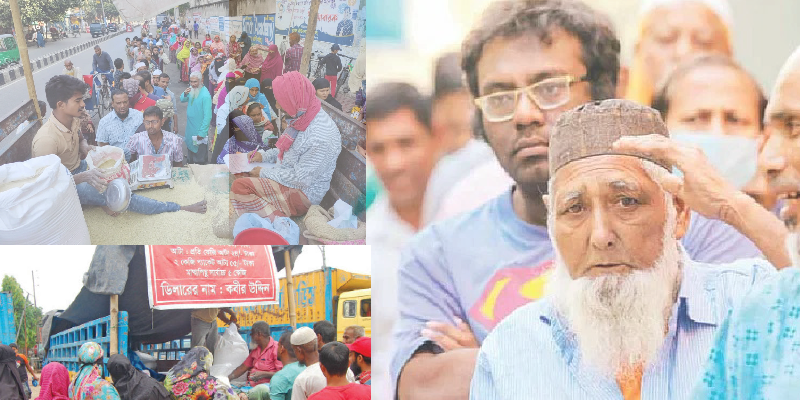
If you are a non-resident in Bangladesh this reason might awe you. You must have heard lofty tags like “Emerging Tiger”, “Role Model of Development”, “Economic Miracle” etc. attached to Bangladesh from 2014 till 2023 by the international reviewers. Economy is a complex subject and in Bangladesh the last 15 years with engineered data economics has been made the most incomprehensible subject. The harsh realities of inflation on the ground, were keeping a large portion of the population starving in silent famine, lacking medical services, depriving of education, devaluation of Taka, losing most of the savings, becoming destitute and watching a handful becoming. And worst of all, the middle class shrunk and ultra-rich emerged.
Let’s begin with the perception, propaganda and myths about Bangladesh’s economy. If you read the reports from many international journals on Bangladesh’s economy it would resonate the same tone as this one published on the World Economic Forum on Nov 19, 2019:
https://www.weforum.org/agenda/2019/11/bangladesh-gdp-economy-asia
Quote:
“Bangladesh has been classed by the United Nations as one of the world’s least developed countries (LDCs) since 1975, but its current trajectory means it is likely to shed that description by 2024. Graduating from LDC status is a sign that a country’s per capita gross national income, human assets, and resilience to economic and environmental shocks are robust enough to enable sustainable development. Bangladesh was 105th in the Global Competitiveness Report 2019 from the World Economic Forum. The more competitive a country is, the more likely it is that it will be able to improve living standards.”
Unquote:
Similar reports are also available on the World Bank and ADB reports. However, some of these reports started to change as Bangladesh resorted to the IMF for a bailout loan in 2023. Quite contradictory tone started to build in their report. You may compare these two reports, for instance:
Report1:
“Bangladesh Economy Shows Resilience Amid Global Uncertainty” on World Bank article published on April 13, 2022.
Web link:
https://www.worldbank.org/en/news/press-release/2022/04/13/bangladesh-economy-shows-resilience-amid-global-uncertainty#:
And
Report 2:
“Strong Reforms are Critical for Sustaining Growth in Bangladesh - World Bank Expects Solid Growth but Risky Outlook for South Asia published on October 3, 2023.
Web link:
https://www.worldbank.org/en/news/press-release/2023/10/02/strong-reforms-are-critical-for-sustaining-growth-in-bangladesh-world-bank-expects-solid-growth-but-risky-outlook-for-so#:
ADB reports are yet more thought provoking. In their routine reports called, Inflation Rate in Asia and the Pacific, Asian Development Outlook (ADO) they have been showing that Bangladesh’s inflation rate has been somewhere around 6.4% on an average from 2014 till 2024 whereas Asia’s average stands at 4.15%. Sometimes Bangladesh’s inflation is shown the highest in the region. The reports are available in the following link:
Inflation Rate in Asia and the Pacific, Asian Development Outlook (ADO) | ADB Data Library | Asian Development Bank
On the contrary, we read on their articles which start with clear assertions like “The economic performance of Bangladesh during FY2016–FY2020 was impressive, despite the economic slowdown in late FY2020 due to the coronavirus disease (COVID-19) pandemic. Bangladesh experienced sustained gross domestic product (GDP) growth averaging 7.6% per year during FY2016–FY2019, with per capita GDP growth averaging 6.3%.”
The complete report titled, Bangladesh: Country Partnership Strategy (2021–2025) an Institutional Document, published in August 2021 can be still viewed on this link:
Bangladesh - Country Partnership Strategy (2021–2025) : Inclusive and Sustainable Growth Assessment (adb.org)
So, the underlying reason commonly attributed to the so called “impressive” economy, if you read these reports in depth, was Bangladesh’s GDP growth which was always over 6.5% during Sheikh Hasina’s regime. Once I asked a top official of ADB in 2020, what is the official population of Bangladesh? I smartly averted the question. The population of Bangladesh according to BBS (Bangladesh Bureau of Statistics) by their census in 2011 and 2022 were around 149 million and 165 which are incredible to the any conscious citizen of the country. In reality it was 20-25 million higher than what BBS underwrote.
Thus, most of the figures were concocted which created an information catastrophe in all economic data. These fabricated data came under the microscope of IMF as Bangladesh resorted to IMF for a bailout package. Many surprises started to emerge from under the carpet. The biggest shock was for the financial sector to see that within 2 years (2022-2024) the country’s forex reserve fell from USD 45bn to USD18bn. One after another shocking revelation of the shattered economy eroded the moral and confidence of the regime. Besides, the people could see quite clearly that Sheikh Hasina was had no other place to resort to for loan, seemed like her world was becoming smaller and smaller. If the fall continued like this Sheikh Hasina had no other options but to fee from the country anyway in 2025 as the country was inching towards obvious bankruptcy.
Local economists were put into a jumble of defective figures so that it becomes perilous for them to portray the correct picture. But it does not take to be an economist to understand why Bangladesh needed a bail-out package from the IMF? No doubt that by 2023 the battered economy came to an impasse. And the blame went to none other than the Ukraine-Russia war. Ironically, the oil prices crossed USD 100/barrel from May 2022 till Dec 2022. Though the price came down below USD100/barrel from Feb 2023 that did not save Bangladesh from seeking a bailout package from IMF or the Bangladeshis from reduction of oil price in the country as the value of BDT fell by 40% against USD. Certainly, Bangladesh had seen even worse days in oil prices, yet did not have to resort to IMF.
Apart from the inflation, which on the paper was around 9% and on the ground was not less than 30% from 2020 till 2024, if we look at the other indicators of economy from the global scale we would clearly understand the scenario of the frustrating economy of Bangladesh. Some are shared here for evidence:
Human Development Index (HDI)
2009: Bangladesh ranked 146th out of 182 countries.
2022: Bangladesh ranked 129th out of 191 countries.
Global Competitiveness Index (GCI)
2009: Bangladesh ranked 106th out of 133 countries.
2019: It moved to 105th out of 141 countries.
Ease of Doing Business Index
2009: Bangladesh ranked 119th out of 181 countries.
2020: It dropped to 168th out of 190 countries.
Corruption Perceptions Index (CPI)
2009: Bangladesh ranked 139th out of 180 countries.
2023: Bangladesh ranked 147th out of 180 countries.
Environmental Performance Index (EPI)
2010: Bangladesh ranked 139th.
2022: It ranked 177th out of 180 countries.
Global Innovation Index (GII)
2009: Bangladesh ranked 116th.
2023: Bangladesh ranked 109th.
Logistics Performance Index (LPI)
2010: Bangladesh ranked 79th out of 160 countries.
2018: Bangladesh ranked 100th.
Whether Purchasing Power Parity (PPP) data or these parameters, all economic data boils down to the market and the inflation, i.e. the value of the money. And all myths of superb GDP and PPP were overshadowed by the economic inequality and increase of disparity of wealth among the poor and the wealthy, as measured by the Gini coefficient (a statistic used to gauge income inequality), has been on the rise. In 2000, Bangladesh’s Gini index stood at 0.33, but by 2021, it had climbed to 0.48. This growing inequality reflects a greater concentration of wealth in the hands of a small percentage of the population, while millions remain mired in poverty. Key statistics on wealth distribution:
1) Top 5% of the population holds around 30% to 35% of the country’s wealth.
2) The top 1% controls 16-17% of the national wealth.
3) Conversely, the bottom 50% of the population holds less than 10% of the total wealth.
Ironically, shattered economy is their principal complaint against their predecessors. The middle class in Bangladesh suddenly found themselves to be vulnerable to economic shocks, as evidenced by the impact of the COVID-19 pandemic. As oligarchs and super rich started to emerge from higher middle class some from the higher middle class dwindled to the middle class and to lower middle class from the middle class. The latter was a huge big number from the 2016 till 2022 due to the fact that the economic benefits were confined to a very small club of oligarchs. The reasons can be summarized as below thought these negative aspects of the economy were unprecedented in this country which could not be contained by the regime:
1. Urban-Rural Development Disparity
2. Unequal Access to Education and Opportunities
3. Concentration of Wealth in Industry and Politics
4. Cronyism and Oligarchism
5. Financial Exclusion of the mass
6. Poverty Trap for the Poor
7. Labor Exploitation
8. Inadequate Social Safety Nets
However, Bangladeshi diaspora of economist and development think tanks continued the pressure on the regime by exposing the true picture as much as possible on their part despite the pressure from the deep state and abnormal economic data. Their deeper analysis of the economic numbers reveals a pathetic picture of the shattered economy of Bangladesh. An excerpt that clearly depicts the economy of Bangladesh, for example, can cited from the article by Dr. Fahmida Khatun, titled Bangladesh’s growth story lacks justice and humanity, Published on The Daily Star on 4 August 2024.
Quote:
“the allocation of public resources to the social sectors is very low and stagnant although both the size of the economy and the national budget have expanded over the years. Allocation for the health sector is at 0.74 percent of GDP, and only 1.67 percent of GDP is for education. Actual public expenditure for social safety net programme (SSNP) is very low at 1.32 percent of GDP in FY 2025, even though the government has inflated SSNP allocation figures by adding pensions for government employees, interests for savings certificate, and agricultural subsidy to the calculation.”
Unquote:
The complete article can is available in the following Link: https://cpd.org.bd/bangladeshs-growth-story-lacks-justice-and-humanity
State machinery from 2010 till 2023 was concocting economic data in such a way so that the numbers looked flowery outside, desperately creating various myths of super economy. Any challenge to the process or revelation of the rotten core of the economy would result in violent dissent. The economic critics got a huge momentum when IMF started unearthing the real scenario of the numbers to the nation. For example, in 2022 Bangladesh Bank was forced to correct economic data -$18,639b which showed more than half of the value had to be adjusted. In order to hide the data, at one point of time the Governor of Bangladesh (Central) Bank closed the doors to the Bangladeshi journalists. However, they could not stop IMF from publishing the real figures on their reports. The latest is in the following link:
https://www.imf.org/en/Publications/CR/Issues/2024/06/24/Bangladesh-Second-Reviews-Under-the-Extended-Credit-Facility-Arrangement-and-the-550944
The Second Reviews under the Extended Credit Facility Arrangement IMF country report No. 24/186 has been appended to this report which reveals horrific concealment of facts figures by the State which angered the people the more than the shattered economy did.
Brandishing was the GDP of the economy which they managed to keep slightly better than India and Pakistan. But the ground reality was such that the country could never zero the trade imbalance between India and Bangladesh and same for China and Japan were beyond imagination. During the time Sheikh Hasina ascended to the power, the economy of Bangladesh was not in such a condition that the general mass could not afford basic necessities, such as food, transportation, clothing, house rent, education and utilities. As she continued, by the hook or by the crook, inflation had been increasing in proportion to her tenure. The people grew a kind of perception that the only way to stop the spiral growth of inflation was to get rid of Sheikh Hasina’s regime. Shattered economy could not be covered by myths and hence finally Sheikh Hasina had to leave with all her booty, so did all her oligarchs.
|
This video illustrates how the banking facilities were confined to only a small part of the people of Bangladesh who are called Oligarchs of Sheikh Hasina |
View Comments
#6 Legitimacy of the Regime
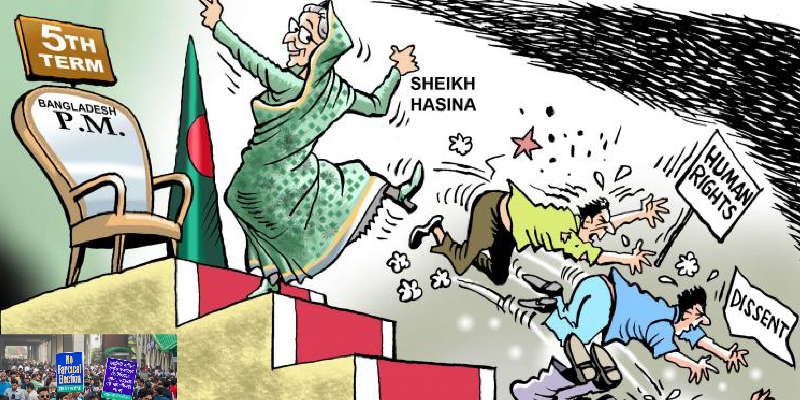
Sheikh Hasina lost the ethical legitimacy to rule in the eyes the people of Bangladesh within 3 years of her ascending to power bagging more than two thirds of the majority in the parliament, soon after she had abolished the scopes for the caretaker government in 2011. And the purpose was clear to all. At the outset of her reign, as she mutilated the constitutional process to reign perpetually, bypassing public mandate, using a few members of the state machinery in both legislative and executive bodies. Eventually it turned out to be a ‘Reign of Terror’ for the nation. All elections after 2009 were controversial and rather were selections. Hence she had no legitimacy to rule. Oligarchs and crony capitalists emerged like in all other textbook authoritarian state who replaced the regular politicians which the nation did not want to see again in this country. Oligarchs and crony capitalists emerged like in all other textbook authoritarian states who replaced the regular politicians which the nation did not want to see again in this country. The nation saw helplessly the destruction of the democratic structure of the country and no other options but to oust her in a mass protest or some sort of revolution. If it did not happen in this 2024 July-August movement, the nation would turn into a civil war like Myanmar or Syria.
The chink of trust between the citizens and Sheikh Hasina was created in 2011. Within 2 years of ascending to power and settling down from BDR strain, Sheikh Hasina’s government brought about a highly controversial 15th amendment to the Constitution, using her majority in the parliament abolished the caretaker government system and eternally ceased the scope of any democracy in the country. Surprisingly, there was no lack of constitutional legality of her reign. The entire process was perceived by the nation as an utter treachery and a sheer example of political hypocrisy. It was Sheikh Hasina’s party who called for over 100 days of national strike just to implement Caretaker Government into the Constitution in 1996. Ironically, it is her regime who abolished the same process in order to stay in power as long as she lived which awed the nation.
This essentially requires to shed light on the Caretaker Government (CTG) system which was introduced in Bangladesh in 1996 through the 13th amendment to the Constitution by BNP led government. It was designed to ensure free and fair elections by temporarily transferring executive power to a non-partisan, interim government. This system was introduced following widespread mistrust of the ruling parties conducting elections. Under the CTG system, a neutral administration would govern for 90 days to oversee parliamentary elections, ensuring transparency and fairness. The caretaker system functioned during the elections of 1996, 2001, and 2008. It was seen as an essential mechanism to avoid electoral fraud and ensure credibility, particularly in a polarized political environment.
In 2011, Sheikh Hasina's government, through the 15th amendment to the Constitution, abolished the caretaker government system. The Awami League justified the decision by stating that the caretaker system was no longer viable and could potentially create opportunities for undemocratic military interventions, as seen during the 2006–2008 military-backed caretaker government. The narratives of the ruling party were rejected by the people and decision was highly controversial as mentioned here and met with widespread opposition from political parties, civil society, and various stakeholders in Bangladesh.
Subsequently, the BNP and its allies boycotted the 2014 general election, leading to a one-sided election where the Awami League won uncontested in many constituencies for which the nation saw no regret or remorse from Awami League. Since the caretaker government system's abolition, elections in Bangladesh have faced serious accusations of rigging, ballot stuffing, and voter intimidation. Both the 2014 and 2024 elections were criticized for lacking any opposition and contriving a “Dummy Opposition” instead.
An election without opposition is a selection which completely disconnected the citizens from the parliament. Despite apprehensions, BNP participated in 2018 election on the face of suggestions and criticisms made by the international observers, envoys and critics. The 2018 election was, hence, participatory keeping Sheikh Hasina on the driving seat though. She, on the contrary, made the opposition’s apprehensions true by her tyranny, vote rigging, suppression of opposition, and by an innovative manipulation nicknamed as ‘ballots of the eve of the election day’. The ballot boxes arrived at the polling stations stuffed-in merely for the polling officers to count and declare her preselected candidate a winner. In some places the total ballots exceeded the total number of voters for that constituency and hence, was a landslide victory of the ruling Awami League. The Election Commissioners could not answer to the questions of the journalists who were later silenced by the secret police.
As a result, the general mass never felt any moral commitments to the regime and rather felt an antipathy from the core of their heart was expressed on various occasions. Finally, the golden opportunity arrived for the mass. The movement in July 2024 initially fueled by student movements demanding reforms in job quotas, but eventually morphing into widespread calls for democratic reforms and Hasina's resignation. The use of heavy force by the government to quell protests, resulting in numerous casualties, only intensified the public's discontent. At the end, it boiled down to a single demand of her resignation which her iron fist could not retaliate any longer than the 5th August of 2024. If she were somewhat fair in the electoral process she might lose the power, perhaps not face a situation to run away from the country but she could still be the head of the opposition party in the parliament and retain the bare minimum reputation of her age-old party and sympathies from the people of the country.
View Comments
#5 Republic Vs People
Every nation has got some might. It apples the might against external forces. When the state machineray starts applying its might against its own citizens the fall of that statemachinery is just a matter of
[1]View Comments
#4 Weak Political Structure
During the last 15 years Bagladesh has seen complete depoliticisation and the rise of oligarchs replacing the politicians. At one point of time, ruling Awami League found themselves to have no political opponents at all in the country. So, they conducted an election where they became their own opponent in the parliament which is unprecedented at all. The source of fresh blood in politics in Bangladesh had been student wings of the mainstream political parties, came to a stern reality that it became a source of student hooligans for the party. A sheer stop of flow of talents in politics for 30-40 years completely eroded the soil of politics of the country.
[1]View Comments
#3 Corruption, Nepotism & Utter Breach of Governance
In 15 years of her regime, Sheikh Hasina could not show to the nation any significant reduction in corruption [1]
|
State machinery was used and abused in form of plunder for personal gain of the regime top. This video is unfortunately and example of thousands of others. This was never precedented in the history of Bangladesh |
View Comments
#2 International Reputation
Sheikh Hasina regine earned a very bad reputation internationally except for India. The pressure kept rising on her by the international media being critic of her and showing all the details of her brutality. This necessarily eroded her confidence.
[1]View Comments
#1 Widespread Unemployment
This is the number 1 reason for her regime to face the ultimate fall in utter disgrace as the youngsters came to a do or die situation to 1 Agendum: Get Down Hasina
[1]View Comments




